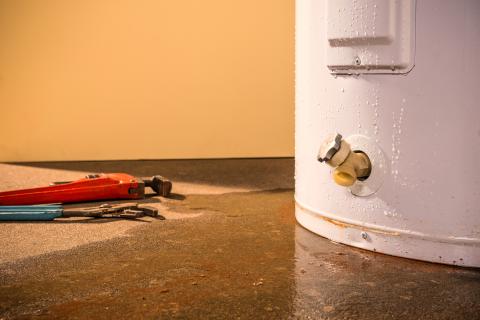With spring comes heavy rain... and, occasionally, water damage to your home. That is, unless you take certain measures to prevent it.
1. Clean your gutters and downspouts:
Remove any leaves, branches or debris that may obstruct the flow of water. This will prevent overflows and foundation damage. Downspouts should discharge water at least two meters from the house's foundation, then drain away from your property. Alternatively, you can install a barrel to collect water for the garden.
2. Create favourable inclines:
Good inclines direct water from melting snow safely away from the house. This means less risk of seepage and damage.
3. Check and waterproof your foundations:
Water seeps through tiny cracks and holes. This is why it's imperative to spot and seal them. Use hydraulic cement for large cracks. This will develop strength in the presence of moisture. As for the waterproof membrane, it will protect your foundations from premature crumbling and extend the life of the concrete.
4. Inspect your roof:
The most vulnerable part of your home to weather damage is your roof. Before the rainy season begins, inspect the condition of the joints and shingles, and make sure you repair any cracks that could lead to water infiltration.
5. Install a sump pump:
An excellent way to protect your home and its foundation, as the pump will evacuate any water entering the residence to the outside. You should also have a spare pump powered by a battery or generator to protect you in the event of a power failure.
6. Keep flowerbeds away:
Since plants need and attract water, avoid planting flowerbeds near foundations. When it rains heavily, plants don't always absorb cumulated water quickly enough. As a result, the moisture can damage the foundations and seep into your home. The same applies to trees. Their roots, attracted by water close to the foundation, could damage or even block your drainage system.




